- Home
- JoAnn Ross
Sea Glass Winter Page 2
Sea Glass Winter Read online
Page 2
Although their mission tended toward knitting them into a tight, cohesive unit, aimed for consensus, as team leader it was Dillon’s call.
He had a month left downrange, and then he was going to leave the military and return to the States, where he’d signed up with the Troops to Teachers program and already had a job as a high school physics teacher and basketball coach waiting for him in Oregon.
Which should’ve been the good news. And it was. But there was always a flip side, and the flip side of this situation was that while EOD was already one of the most dangerous jobs in the military, the last thirty days were the riskiest, when fatigue, anticipation, and distraction dulled instincts.
As everyone was all too aware, in war, if you stuck around long enough, good luck ran out. Dillon was determined to be one of the ones who left this hellhole lucky.
“I’m going in.”
The Taliban were not shy about their belief that time was on their side. “You may have the watches,” the popular expression went, “but we have the time.”
Today, Dillon vowed, he was going to employ that same patience to keep from focusing on that separation countdown clock ticking away in his head.
West sealed him into the eighty-pound Kevlar-clad bomb suit, which looked sort of like a hazmat outfit but made Dillon feel like the Michelin Man. It also increased the intense desert heat to a temperature that felt like the surface of the sun. Not helping was the additional ninety pounds of equipment he was carrying.
Finally, lowering the face shield on the bulbous helmet, he began plodding forward. Although the suit had a radio receiver, he turned it off to avoid sending out stray radio waves that could set off the IED.
Which meant that he was walking toward a bomb that he knew nothing about, without any communication with his team, an easy target trussed up in a bomb suit that definitely hadn’t been designed for sprinting out of danger if things went south.
It was deathly quiet. The only sounds Dillon could hear as he took the long walk he hoped to hell wouldn’t be his last were the pounding of his heart, his steady breathing, and the whir of the fan inside the helmet.
With the temperature at 102 degrees, the fan was fairly useless, and salty sweat began dripping into his eyes, making him think he should’ve just opted for the lighter-weight body armor and helmet. Hell, if the thing did blow, he’d go right up with it, no matter what he was wearing.
Once he’d put that thought aside, since he’d already made his decision, options began running through Dillon’s mind. The explosive could be set on a timer, which meant it could explode at any moment.
Thirty feet to go.
Or it could be electronically controlled by one of the dozen pairs of eyes he could feel watching him from those buildings surrounding the deserted square, which was more likely, given that familiar pink wire.
Twenty.
Dillon dropped to his stomach, took out his telescoping trip-wire feeler, and began crawling toward the target, altering his direction because if the bomb maker was watching and saw him take a straight line, next time there’d be a pressure bomb waiting for him.
This was where luck really came in. One zig where he should’ve zagged, and Shelter Bay High School would be looking for a new coach.
Dillon considered another option—maybe the wire was merely a decoy, drawing him closer to a buried pressure plate, just waiting for his body to set it off.
In his business, Murphy’s Law ruled.
At ten feet out, he’d definitely reached the point of no return.
His mind shifted into a familiar zone. He made it the rest of the way, took out a paintbrush from his kit, and began removing dirt and sand from what was, as he’d suspected, yet another cell phone bomb. It sometimes amazed Dillon that in this remote part of the world, where electricity and indoor plumbing were considered luxuries, every damn bad guy out there seemed to have a smartphone.
Feeling as if he were moving in super–slow motion, he began digging away at the blasting cap, trying to lift it out without causing it to blow.
Just as the wire gave way, the world exploded.
* * *
From inside the blazing fireball, Dillon heard a bell ringing. Blindly groping out, his hand found the phone, picked it up, and put it to his ear.
“Yeah?” His voice was as shaky as the rest of his body, which was buzzing with adrenaline. Afghanistan faded away and he found himself in his bedroom.
“You okay, Coach?” the male voice on the other end of the line asked.
“Yeah,” Dillon repeated as he dragged himself out of the familiar nightmare. There were various versions, but all had him checking his body upon awakening, just to make sure every part was still where it belonged. “Sure.”
“Did I wake you up?”
“Hell no,” Dillon lied, reaching out to grab his watch, with its lit-up dial, from the bed table. It was mid-November and still dark at six in the morning. “What’s up?”
“I wanted to remind you that you’re having breakfast down at the Grateful Bread with the boosters this morning.”
“I’ll be there.” If only for the sweet potato hash. The company, which Dillon understood was well intentioned, he could definitely do without.
“Thought I’d better warn you—you’ll be fielding a lot of questions about the SoCal phenom.”
Now that his heart had settled down to something resembling a normal rhythm, Dillon decided to try getting out of bed. Ooh-rah, both his legs were not only still attached, but they also proved capable of holding him up. Just barely.
“And what SoCal phenom would that be?”
“Templeton. A kid from Beverly Hills who was the highest-scoring freshman in the history of California State hoops last year.
“Good for him. Sounds like the Beverly Hills High JV coach is going to have a dynamite season. And you’re telling me this why?”
“Because he just transferred into Shelter Bay. He’s our golden ticket to the state championship, Coach.”
Dillon rubbed his hand down his face, then dragged his body toward the kitchen, desperately in need of coffee for this conversation. Ken Curtis was a nice sixtysomething guy who owned Harbor Hardware and had headed up Shelter Bay High School’s booster club for the past three decades.
“Shelter Bay High School hasn’t had a winning season for twelve years,” Dillon felt obliged to point out.
“That’s why we hired you… . Just a minute.” Dillon heard a woman’s voice in the distance. “Marcy wanted me to remind you that you’ve also got a meeting with the cheer moms right after school tomorrow afternoon. They’ve got a new routine they want to debut at the opening game.”
Dealing with the cheer moms, dance squad, bag-lunch cadets, parent committee, and myriad other groups intertwined with the basketball team was a part of his job description that hadn’t been covered in his Troops to Teacher training.
As he poured water into the Mr. Coffee, Dillon, who’d always been an optimist, reminded himself that unlike in his last gig, none of those Shelter Bay residents seemed inclined to kill him.
At least not yet.
2
Although Claire Templeton’s career as a jewelry designer tended to have her working seven days a week, especially as the deadline for a new season’s launch approached, she’d always enjoyed Mondays.
Monday represented the start of a new week filled with possibilities. This Monday, however, sucked.
She’d been fighting a culinary battle for the last thirty minutes and was losing. Badly. After she’d stuffed the first two batches of pancakes down the garbage disposal, the third, charred black on the bottom, had set off the smoke detector, which was blaring loud enough to wake the dead in nearby Sea View Cemetery.
She’d turned off the gas burner and was carrying a wooden chair around a stack of moving boxes when her teenage son, Matt, appeared in the doorway.
He was wearing a pair of baggy surfer jam shorts, a rumpled black Last Dinosaurs band T-shirt that had fit
him a mere three months before but now ended an inch above his waist, and a petulant expression.
So what else was new?
With his heavily lidded brown eyes, tousled, too-long dark hair hanging over a forehead tanned by the Southern California sun, and full lips, he could’ve stepped off the pages of an Abercrombie & Fitch catalog.
During this past difficult year, he’d gone from golden-boy jock to wannabe bad-boy delinquent. Which was why Claire had left the only home she’d ever known and moved here to the small coastal town of Shelter Bay. She hoped that here he wouldn’t face as much daily temptation as Los Angeles had offered.
“My alarm didn’t go off,” he muttered, cutting her off before she could point out that he didn’t want to be late his first day in a new school.
Which she hadn’t been going to say.
Okay, admittedly she’d been thinking that, but to avoid another argument about personal responsibility today of all days, she held her tongue as he took the chair from her hands and moved it out of the way.
Physically taking after the father he’d never known, he’d topped her five foot five inches by the time he was twelve. Now, although he still wasn’t old enough to drive, he’d hit six-three, and if his oversized hands and feet were any indication, he still had a lot of growing to do.
“You could’ve just knocked on the bedroom door.” His beautiful lips curled in a sneer. “Setting off the smoke detector is definitely overkill.”
He reached up, took off the white plastic casing, and turned off the siren. Blessed silence. The only sound was the low roar of white-capped waves outside the cottage’s kitchen window. When she’d first made the decision to leave Los Angeles for this coastal town, Claire had had visions of the two of them taking long walks on the beach, healing after the rough year they’d both suffered through, catching up at the end of the day, growing close again. As they’d been for so many years.
“I didn’t set the alarm off on purpose.” Was that a tinge of defensiveness in her tone? Dammit, yes, it was. “I was making your grandmother’s chocolate chip pancakes.” Or at least trying to.
Claire opened a window to air out some of the smoke, which in turn let in damp sea air tinged with salt and fir from the trees surrounding the cottage on three sides. “For luck.”
Her mother, with whom she and Matt had lived since she’d first brought him home from the hospital, had always made chocolate chip pancakes for special occasions. Staring down at the gooey mess stuck to the bottom of the pan, she realized that like so many things Jackie Templeton had made look effortless, cooking her breakfast specialty was more difficult than it looked.
“That’s okay,” he said. Those were the first halfway positive words she’d heard from him since they’d left California. He took a box of Cheerios down from the cupboard. “It’s not as if I’m going to need luck.”
“You’re not going out for the team?”
“I might play.” Shoulders that looked too broad for his still lanky body shrugged in that blasé, uncaring way only a teenager could pull off. “Though I can’t see much point in playing for a Podunk program that hasn’t pulled off a winning season in nearly the entire time I’ve been alive.”
“Which is why they’ll be lucky to have you.”
Giving up on the pancakes, she ran the water into the sink and turned on the disposal, sending the rest of the batter, along with this latest charred effort, down the drain.
His only response was a grunt as he poured the milk into the bowl and sat at the table, which was set in front of the window that overlooked the ocean.
The cottage itself was much smaller than the house from which they’d moved, but the sea view—which included the skeleton of a shipwreck—was definitely worth the inflated price she’d paid for it. Of course, seeming determined not to like anything about his new home, when they’d first shown up a day ahead of the moving van, Matt had complained that it was too far from town.
She reluctantly gave him points about their isolation. Considering how much it rained here on the coast, perhaps she should have looked for a place in town. A town he’d immediately dubbed “Hicksville by the Sea” as they drove past the welcome sign.
Claire strongly doubted that there was anything about Shelter Bay that could make him happy. “Give the boy time,” she could almost hear her mother saying. “Kids are resilient. He’ll settle in.”
Claire could only hope that was true. Because after the year she’d been through, she was rapidly approaching the end of a very tattered rope.
He continued to sulk as he ate his cereal, then surprised her by putting his bowl and spoon in the dishwasher. Taking that as a positive sign, Claire didn’t mention his leaving the milk and sugar on the table.
“At least you arrived in time to make the team,” she said, attempting to put a positive spin on the conversation.
Tryouts for the basketball team were being held today. After driving through the night on the last leg of their journey from L.A. to Shelter Bay, she’d managed to arrive Saturday afternoon.
“Like making the team would be a problem.” His tone was thick with the derision that had become all too familiar of late. “I already got a call from some guy who heads up the boosters. He said everyone in town’s excited about me becoming a Dolphin. Which is a lame name. The Normans conquered England. Dolphins do stupid tricks for fish at Sea World.”
His Beverly Hills team had been the Normans, and Claire knew how proud he’d been to wear the black shirt with the orange-and-white N shield.
“I suspect the Miami Dolphins players might disagree with that description,” she said mildly as she put the milk in the ancient refrigerator, which would need to be replaced. “And dolphins just happen to be among the most intelligent mammals on the planet… . Why didn’t you tell me you’d gotten a call?”
They’d agreed when high school coaches started trying to recruit him back in middle school that he’d never talk to anyone about basketball prospects unless she was present for the discussion.
“You were at the grocery store. Then I forgot about it.”
Not wanting to call him a liar, she wiped off the counter with a sponge. “Well, in the future, try to remember, okay?”
He shot her a dark look, then stalked from the kitchen. A moment later Claire heard the bedroom door slam behind him.
Feeling as if she were walking on eggshells, she followed. But didn’t go in.
“It’s supposed to rain,” she said through the closed door.
“It’s rained all weekend,” he retorted. “And after seeing all the moss growing on the trees, if I worried about getting wet, I’d never go to school.”
From the way he’d been acting, he’d probably prefer dropping out. It was something that had worried her since the day he’d been caught with marijuana in his locker. She supposed the only problem with that idea in his mind was that, if he did leave school, he’d be stuck in the house all day with her.
Right now, apparently, riding his bike in the rain two miles across the bridge into town was preferable to that prospect.
“And having my mom drive me like some lame second grader would be majorly humiliating.”
“There’s always the school bus.” When the agent had first shown her the cottage, one of the pluses had been that the bus stopped at the corner, less than half a block away.
“Kill me now,” she heard him mutter. “I’m riding my bike.”
He was fifteen years old, on his way to becoming a man. So why did she feel the same way she had when, at six, he’d assured her he could cross the street by himself?
Rain began to pound like bullets on the cedar roof as the forecasted storm chose that moment to arrive. “I realize this may come as a disappointment,” she said, deciding that on this she was standing firm, “but I’m still your mother. And unless you want to take the bus, since I have to go into town anyway, I’m driving you.”
The bedroom door swung open. He was holding his school clothes in an untidy
wad under his arm. So much for that nice crisp crease she’d ironed so he could make a good first impression.
“Why don’t I just throw myself off the damn cliff?” he suggested, his tone thick with scorn. “Problem solved.”
With that lovely suggestion ringing in her ears, he strode past her into the single bathroom they were forced to share and shut yet another door between them.
As she heard the shower, which needed repairing, sputter on, Claire pressed her fingers against her eyes until she saw little dots like snowflakes and assured herself, for the umpteenth time, that she’d made the right decision in moving them here to Shelter Bay.
3
From the outside, with its white siding and pots of yellow mums, the Grateful Bread restaurant fit in with the other cheerful coastal buildings lining the street that faced the town’s seawall. The only giveaway that it might not be exactly your typical small-town breakfast gathering place was its name on the oval sign, which was the same color as the bright green roof.
Inside, it was an obvious homage to the sixties band, with its obligatory peace sign, multicolored dancing-bear poster, and DEAD HEAD WAY and SHAKEDOWN STREET signs on the walls.
The boosters had claimed the coveted booth in back, which had been created from a cut-in-half VW bus painted in psychedelic colors. On the hood, a rainbow arched over a field of wheat, in the middle of which was a picture of a woven basket of various breads.
Although the restaurant wasn’t that large, it took Dillon nearly five minutes to get from the door to the bus booth, as seemingly everyone in the place wanted to talk about the team and this year’s season. He didn’t need mind-reading powers to know that nearly everyone who cared about basketball was counting on him to be a miracle coach. Because he’d kept hearing the same question over and over again since he’d first arrived in town a few months ago.
“So, Coach,” the conversation would go, “what do you think of our chances this year?”
And although he’d try to couch his answer, attempting not to be a wet blanket while also not wanting to raise expectations, invariably the next question would be, “So, you think we’ll make state?”

 Magnolia Moon
Magnolia Moon Summer on Mirror Lake
Summer on Mirror Lake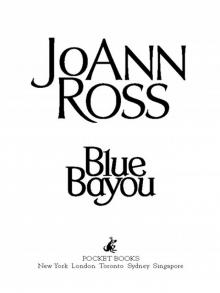 Blue Bayou
Blue Bayou Champagne and Moonlight
Champagne and Moonlight No Regrets
No Regrets Long Road Home
Long Road Home Southern Comforts
Southern Comforts Herons Landing
Herons Landing Untamed
Untamed No Regrets (Mira Romance)
No Regrets (Mira Romance) Dark Desires
Dark Desires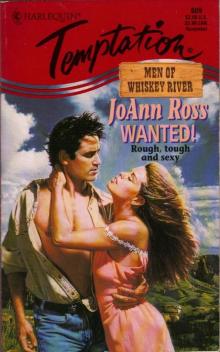 Wanted!
Wanted! River Road
River Road Midnight Runaway
Midnight Runaway The Long Way Back
The Long Way Back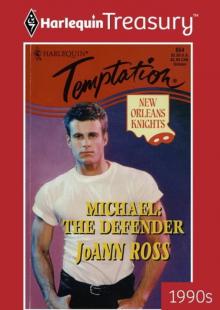 Michael: The Defender
Michael: The Defender Hot on the Trail
Hot on the Trail When I'm With You
When I'm With You Legends Lake
Legends Lake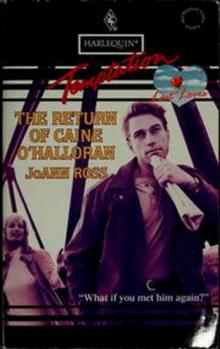 The Return of Caine O'Halloran
The Return of Caine O'Halloran Dance with a Dynasty
Dance with a Dynasty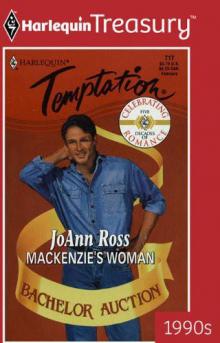 MacKenzie's Woman
MacKenzie's Woman Impulse
Impulse Sunset Point: A Shelter Bay Novel
Sunset Point: A Shelter Bay Novel You Again: A Shelter Bay novella (Shelter Bay series Book 8)
You Again: A Shelter Bay novella (Shelter Bay series Book 8)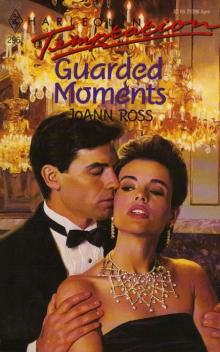 Guarded Moments
Guarded Moments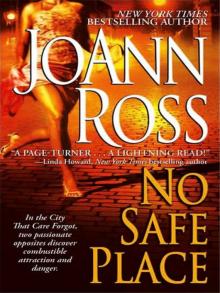 No Safe Place
No Safe Place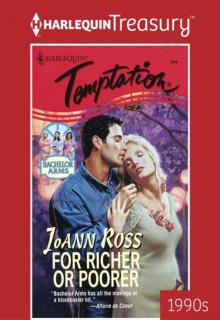 For Richer or Poorer
For Richer or Poorer Private Passions
Private Passions Once Upon a Wedding
Once Upon a Wedding Snowfall on Lighthouse Lane
Snowfall on Lighthouse Lane Christmas on Main Street
Christmas on Main Street A Place in Time (Rum Runner Island Book 1)
A Place in Time (Rum Runner Island Book 1) Leaving Blue Bayou
Leaving Blue Bayou The Return of Caine O'Halloran: Hard Choices
The Return of Caine O'Halloran: Hard Choices Lucky in Love
Lucky in Love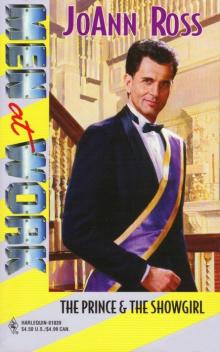 The Prince & The Showgirl
The Prince & The Showgirl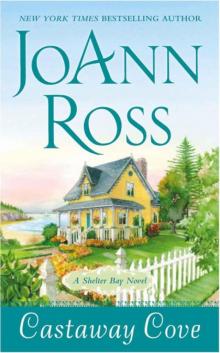 Castaway Cove
Castaway Cove A Woman's Heart
A Woman's Heart One Summer
One Summer Ambushed
Ambushed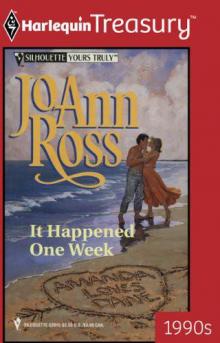 It Happened One Week
It Happened One Week Home by the Sea
Home by the Sea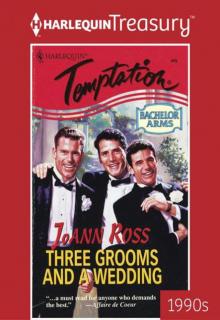 Three Grooms and a Wedding
Three Grooms and a Wedding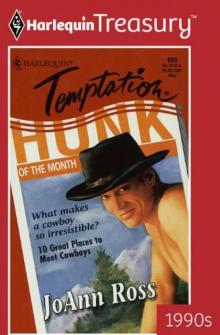 Hunk of the Month
Hunk of the Month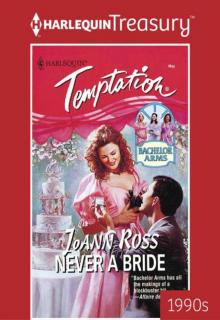 Never a Bride
Never a Bride Sun Kissed
Sun Kissed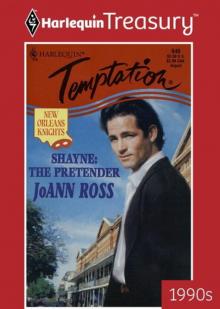 Shayne: The Pretender
Shayne: The Pretender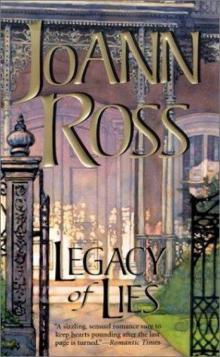 Legacy of Lies
Legacy of Lies Far Harbor
Far Harbor Finn
Finn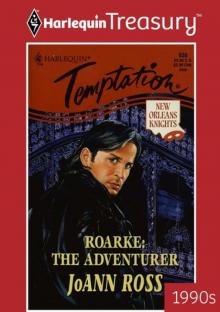 Roarke: The Adventurer
Roarke: The Adventurer I Do, I Do...For Now (Harlequin Love and Laugher)
I Do, I Do...For Now (Harlequin Love and Laugher) Briarwood Cottage
Briarwood Cottage On Lavender Lane
On Lavender Lane Sea Glass Winter
Sea Glass Winter River's Bend
River's Bend Christmas in Shelter Bay
Christmas in Shelter Bay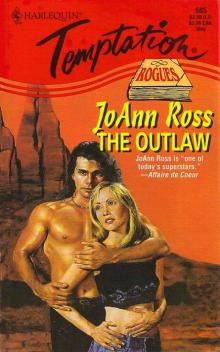 The Outlaw
The Outlaw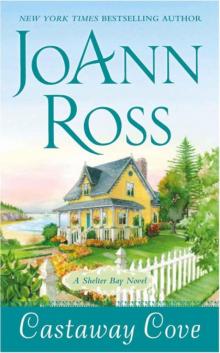 Castaway Cove (2013)
Castaway Cove (2013) Confessions
Confessions Moonshell Beach: A Shelter Bay Novel
Moonshell Beach: A Shelter Bay Novel